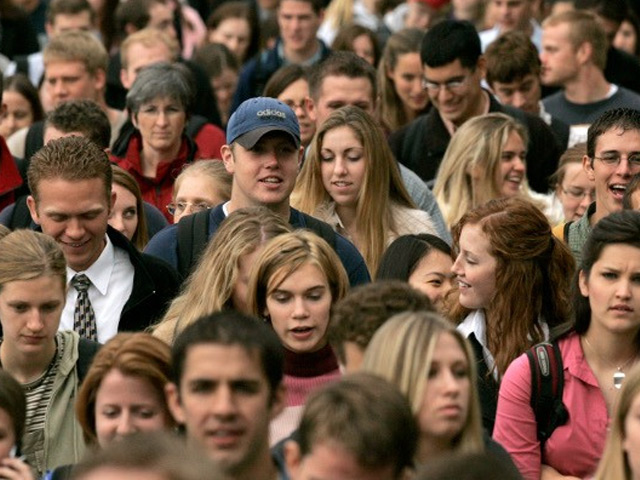The population of the Earth will exceed 10 billion people at the end of the century – UN

The Food and Agriculture Organization of the United Nations (FAO) already in 2009 sounded the alarm: until 2050, the world's population will grow by 2.3 billion - up to 9 billion. And according to the latest data, the world population will increase by 3.1 billion people - from the current 7 billion to 10.1 billion at the end of this century. This is stated in the new UN report on the prospects of population growth in the world.
The question arises, how to feed people, as to increase the production of food will be required by 70%.To feed everyone, over the next 40 years, mankind will need to produce as much food as for the last 8 thousand years, reports "France Press" agency the words of Jason Clay from the World Wildlife Fund (WWF). "If this trend does not stop, until 2050, our planet will change beyond recognition" - added Clay. The growth of the population will entail problems - for example, the reduction of resources.
In addition, according to forecasts, over the next decades, a significant increase in salaries is expected around the world. The news seems happy, but not for the food industry. When the salaries of people grow, they begin to consume, in the first place, more meat, eggs and dairy products. And to produce 454 g of meat, 3.4 kg of grain is needed, as well as for the production of the same amount of cheese and eggs. "More people, more money, more consumption, but the planet remains the same," warns Jason Clay.
And where to get the workers' hands for the village ? The FAO report notes that until about 2050, about 70% of the world's total population will live in cities or suburbs . In addition, even if there are people wishing to work on the ground, there will be a problem with arable land - its amount will not be increased by an extensive way. Forests have already been cut down to a degree dangerous to the biosphere of the Earth.
Carrie Fowler, director of the Global Crop Diversity Trust, a subsidiary of FAO, which, in partnership with such private organizations as Rockefeller and Bill Gates, is committed to maintaining the biological diversity of crop varieties, stresses that non-urbanization and non-absence of land will be a dangerous threat.
The greatest problems will be brought by climate change, global warming. This will require, first of all, new varieties of edible plants that can withstand the heat and drought. The alternative is simple: or nothing to do, and in this case, the production of products will decline, and prices will grow rapidly in the future, or choose a qualitatively different path to feed the 10 billion people who inhabit the planet in 2050.
The report, prepared by the British Royal Society, gives more hopeful forecasts: the potential is still there, the climate will not affect so much on edible crops, and in 2050 the yield will be 50-75% higher than in 2007.
However, Carrie Fowler does not share the optimism of the experts of Foggy Albion, warning that a purely mechanical approach to the problem of increasing food production is impossible. The scientist estimated that since his birth in 1950, part of the cultivated land has increased by 10%, and the population has more than doubled. And the distribution of products was unequal: one part of mankind suffers from hunger, and the other - from overeating. "The area of irrigated land has doubled, the use of water has tripled, pesticides are sprayed at 53 (!) times more," Fowler claims
He refutes the thesis of British scientists about the slight influence of climate change, citing two examples: firstly, rice - an increase of only one degree of night temperature reduces its yield by 10%. Secondly, heat adversely affects the activity of insect pollinators, thereby also significantly reducing the yield on plantations.
In Azerbaijan, experts should seriously work to increase productivity and preserve the viability of lands.


